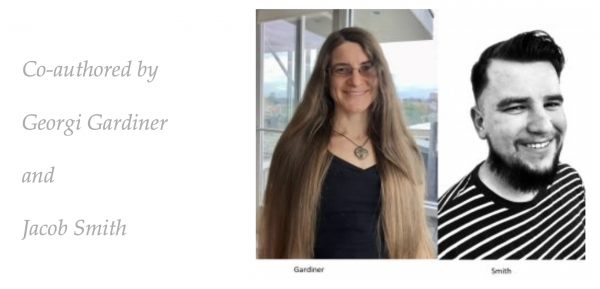Legal Character Evidence Prohibitions and the Opacity of Character
14 June 2021
We tend to think another person’s character helps explain why she acts as she does. When we observe patterns in how others act, we take this to be evidence of a trait or disposition. We attribute loyalty to hose we can rely on, generosity to those who donate significant time and resources, and arrogance to those who focus excessively on their own achievements. These trait attributions help us predict how people will act in the future. Many of us consider ourselves good judges of character.
Character judgments are ubiquitous in ordinary life because they are so useful. They help guide decisions about who to hire or cultivate friendships with. We often predict who will appreciate a pun and who will groan, or who will keep a secret and who won’t.
In light of this, proscriptions against character evidence in courts may appear unwarranted. In the U.S., the Federal Rules of Evidence govern permissible and impermissible uses of evidence for legal procedure. These rules define character evidence as evidence about someone’s propensity to act in a certain way.
Some U.S. evidentiary rules prohibit or limit how evidence about a defendant’s character can be used during trial. FRE 404(a) generally prohibits use of character evidence to prove someone’s conduct on a particular occasion. Many object: If we use character evidence to explain and predict behaviors in ordinary life, why is it prohibited in legal factfinding? And the prohibition allows many exceptions. FRE 607, 608, and 609 permit using character evidence to cast doubt on the credibility of witnesses and FRE 413 permits “similar crime” character evidence against defendants charged with sexual assault. If legal uses of character evidence are reasonable in these cases, why is it generally proscribed?
Epistemological concerns about character evidence exclusions are especially acute for virtue ethicists. Virtue theory emphasizes the centrality of character for explaining and governing conduct. There is apparent tension between holding that character is paramount for understanding behavior and endorsing prohibitions on character evidence for legal factfinding.
Epistemic justifications of legal character evidence exclusions typically appeal to situationism (Mendez 1996, 1998). Situationism holds that contingent features of situations, rather than stable character traits, largely determine a person’s conduct (Gilbert 1999; Alfano 2013). Darley and Batson’s famous Good Samaritan experiments purported to show, for example, that one’s likelihood of helping a stranger in need is determined largely by situational factors, such as whether one is running late (Darley and Batson 1973). Matthews and Cannon (1975) suggest that helping behaviors are better predicted by background noise volume than by character ascriptions such as beneficence. According to situationists, using character evidence in court is misguided for the same reason it is misguided in ordinary life: it underestimates the role of situation-specific conditions in determining behavior. But this justification for character evidence exclusions is antithetical to virtue theory, which foregrounds the role of character in guiding conduct.
In light of this, what should a virtue theorist make of character evidence prohibitions? Should virtue theory, by centering the explanatory power of character, oppose them?
We think not. In response to the situationist critique of virtue ethics, Julia Annas points out that the situationist experiments only measured the test subjects’ conduct, but not their reasoning. Character traits are not merely dispositions to behave in specific ways, but to find certain reasons for acting salient or appealing (Annas 2003). What the situationist interprets as behaviors that conflict with character traits might instead be acting in accordance with reasons-responsive traits.
This virtue ethical response to situationism shows how virtue theory can epistemically justify legal character evidence prohibitions. We have limited epistemic access to the reasons for which others act, suggesting that explanatory and predictive character judgments may be more epistemically burdensome than ordinary practice leads us to believe. First, the same behaviors can be explained by reference to different practical reasons. One could be disposed to tell the truth out of respect for others or from a self-interested desire to be trusted and well-regarded. Behavior can conceal a person’s reasons for acting. A pattern of truth-telling alone does not reveal a person’s reasons.
Further, the reasons underlying behavioral dispositions are probably not as general as we tend to think. Dispositions to tell the truth and to avoid stealing could both be called “honest,” but the reasons to act honestly vis-à-vis telling the truth could easily come apart from reasons to act honestly vis-à-vis not stealing (Kamtekar 2004). Honesty with respect to assertions differs from honesty with respect to property because different reasons can motivate these actions. Reasons to tell the truth to friends, furthermore, differ from reasons to tell the truth to a jury. Gathering character evidence and using it reliably hinges on determining which reasons are salient to a person, and how they interpret, assess, and weigh those reasons.
Forming justified character judgments, then, is more epistemically arduous than we ordinarily think. It is easy to misunderstand how an agent’s character underwrites her conduct, even if her character can ultimately explain a great deal of what she does. And if this provides some reason to pause when using character evidence in ordinary life, it provides even more reason for hesitancy in legal contexts. Courts must prove specific matters: Somebody keyed the car and the factfinder must decide whether Bill did it. Dan drove home, the court must decide whether he was drunk. Character judgments in ordinary life, by contrast, are typically more general. We infer that, since he is reckless, Dan sometimes drives drunk, or we would not be surprised if Bill has keyed a car. We typically use them to explain, rather than predict, particular actions. Character judgments may be more difficult to justify than we commonly think, and all the more epistemically onerous the more specific they are.
Unfavorable character evidence influences jurors more than favorable character evidence (Lupfer et al. 1986). And so the errors caused by character evidence are likely to disproportionately disadvantage the defendant. That is, these errors tend towards false convictions rather than false acquittals. Perhaps in ordinary life this cynical pull of character evidence is less problematic, but legal systems aim to protect the defendant. Evidence law aims to avoid false convictions, on balance, even if more false acquittals result. Since character evidence is less reliable than is commonly appreciated, and its epistemic value is overestimated, there are epistemic grounds for excluding character evidence from legal proceedings.
References
Alfano, Mark. 2013. Character as Moral Fiction. New York: Cambridge University Press.
Annas, J. 2003. Virtue Ethics and Social Psychology. A Priori 2, 20-59.
Darley, J. & Batson, C. D. 1973. From Jerusalem to Jericho: A Study of Situational Disposition Variables in Helping Behavior. Journal of Personality and Social Psychology, 27(1), 100-108.
Harman, Gilbert. 1999. Moral Philosophy meets Social Psychology: Virtue Ethics and the Fundamental Attribution Error. Proceedings from the Aristotelian Society, 99, 315-331
Kamtekar, R. 2004. Situationism and Virtue Ethics on the Content of our Character. Ethics, 114(3), 458-491.
Lupfer, Michael, Robert Cohen, J.L. Bernard and Dale Smalley (1986) Presenting Favorable and Unfavorable Character Evidence to Juries. Law & Psychology Review 10.
Matthews, K. E. & L. K. Cannon. 1975. Environmental Noise Level as a Determinant of Helping Behavior. Journal of Personality and Social Psychology. 32(4), 571–577
Méndez, M. A. 1996. The Law of Evidence and the Search for a Stable Personality. Emory Law Journal, 45, 221-238.
———. 1998. Character Evidence Reconsidered: “People do not seem to be predictable characters”. Hastings Law Review 46(3), 871-894.
Smith, Jacob, and Georgi Gardiner. Forthcoming. Opacity of Character: Virtue Ethics and the Legal Admissibility of Character Evidence. Philosophical Issues.
This entry sketches ideas from our co-authored essay ‘Opacity of Character: Virtue Ethics and the Legal Admissibility of Character Evidence’ (forthcoming) special issue on law and philosophy in Philosophical Issues. See also a cheat sheet for the same. All available on https://sites.google.com/site/georgigardiner/research
Photo: Seeking the Truth Behind the mask Photo by fotografierende on Unsplash
- October 2025
- September 2025
- August 2025
- July 2025
- June 2025
- May 2025
- April 2025
- March 2025
- February 2025
- January 2025
- December 2024
- November 2024
- October 2024
- September 2024
- August 2024
- July 2024
- June 2024
- May 2024
- April 2024
- March 2024
- February 2024
- January 2024
- December 2023
- November 2023
- October 2023
- September 2023
- August 2023
- July 2023
- June 2023
- May 2023
- April 2023
- March 2023
- February 2023
- January 2023
- December 2022
- November 2022
- October 2022
- September 2022
- August 2022
- July 2022
- June 2022
- May 2022
- April 2022
- March 2022
- February 2022
- January 2022
- December 2021
- November 2021
- October 2021
- September 2021
- August 2021
- July 2021
- June 2021
- May 2021
- April 2021
- March 2021
- February 2021
- January 2021
- December 2020
- November 2020
- October 2020
- September 2020
- August 2020
- July 2020
- June 2020
- May 2020
- April 2020
- March 2020
- February 2020
- January 2020
- December 2019
- November 2019
- October 2019
- September 2019
- August 2019
- July 2019
- June 2019
- May 2019
- April 2019
- March 2019
- February 2019
- January 2019
- December 2018
- November 2018
- October 2018
- September 2018
- August 2018
- July 2018
- June 2018
- May 2018
- April 2018
- March 2018
- February 2018
- January 2018
- December 2017
- November 2017
- October 2017
- September 2017
- August 2017
- July 2017
- June 2017
- May 2017

